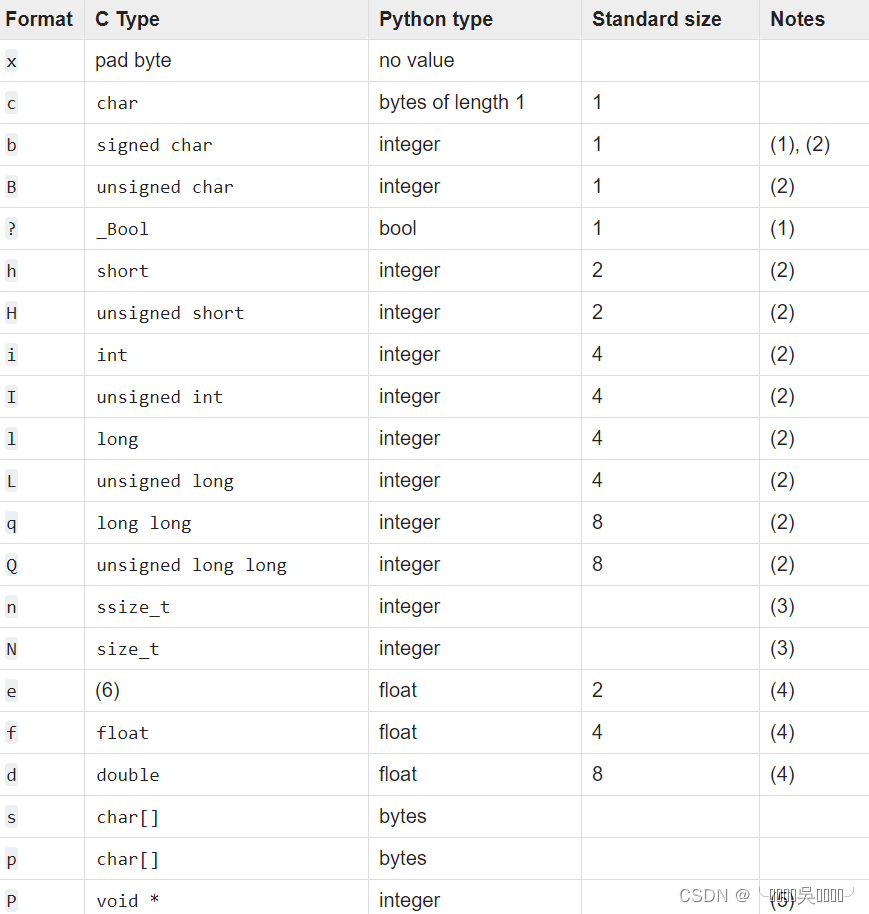第九章 文件的输入和输出
内置函数:open() 的基本语法:
file_object = open(file_name, access_mode='r', buffering=-1)
- flie_name:文件路径名(相对或绝对路径)
- access_mode:打开模式,具体见下表
- buffering:设置访问文件所采用的缓冲方式,0表示不缓冲
| 文件模式 | 操作 |
|---|---|
| r | 以只读方式打开 |
| rU 或 Ua | 以读方式打开, 同时提供通用换行符支持 (PEP 278) |
| w | 以写方式打开 (必要时清空) |
| a | 以追加模式打开 (从 EOF 开始, 必要时创建新文件) |
| r+ | 以读写模式打开 |
| w+ | 以读写模式打开 (参见 w ) |
| a+ | 以读写模式打开 (参见 a ) |
| rb | 以二进制读模式打开 |
| wb | 以二进制写模式打开 (参见 w ) |
| ab | 以二进制追加模式打开 (参见 a ) |
| rb+ | 以二进制读写模式打开 (参见 r+ ) |
| wb+ | 以二进制读写模式打开 (参见 w+ ) |
| ab+ | 以二进制读写模式打开 (参见 a+ ) |
| x | 如果文件存在报错,不存在则创建 |
# 下面是一些打开文件的例子:
f = open('/etc/a') # 以读方式打开
f = open('a', 'w') # 以写方式打开
f = open('a', 'r+') # 以读写方式打开
f = open('a.sys', 'rb') # 以二进制读模式打开
bytes 字符串转换字节类型
n = bytes(李杰,encoding='utf-8')[转换的字符,可以是变量,转换后的编码]
字节转换为字符串
str(bytes(李杰,encoding='utf-8'),encoding='utf-8)
文件操作
文件读取
一些实例:
import os
if __name__ == '__main__':
# 全文读取
with open('file_tt/a.txt', encoding='utf-8') as f:
contents = f.read()
print(contents.rstrip())
# 按行读取——1
with open('file_tt/a.txt', encoding='utf-8') as f:
for li in f:
print(li)
# 按行读取——2
with open('file_tt/a.txt', encoding='utf-8') as f:
lines = f.readlines()
for line in lines:
print(line)
# 去除多余空行
with open('file_tt/a.txt', encoding='utf-8') as f:
lines = f.readlines()
for line in lines:
print(line.rstrip()) #str.rstrip([chars])
# chars -- 指定删除的字符(默认为空白符)
读取二进制文件:access_mode一般为rb。
# 常见方法
with open("sample.bin","rb") as f:
data = f.read()
print(data[2])
# 还可以
import struct
with open("sample.bin","rb") as f:
data = f.read()
unpack_result = struct.unpack('hhl', data[0:8])
print(unpack_result)
其中struct.unpack(fmt,string),解包。
fmt对应参数:hhl = short+short+long = 2 + 2 + 4 = 8 = [0:8]

文件写入
write() 方法。
mode=“w”,写模式,会重写文件;mode=“a”,追加模式,会在文件末尾添加数据。
if __name__ == '__main__':
with open('file_tt/a.txt', 'w+', encoding='utf-8', mode='a') as f:
f.write("aaab")
多线程编程
两大模块:thread模块、threading模块
老生常谈:进程和线程:一个线程只能属于一个进程,而一个进程可以有多个线程,但至少有一个线程
threading 模块
import threading
创建 Thread 对象有 2 种方法:
- 直接创建 Thread ,将一个 callable 对象从类的构造器传递进去,这个 callable 就是回调函数,用来处理任务
- 编写一个自定义类继承 Thread,然后复写 run() 方法,在 run() 方法中编写任务处理代码,然后创建这个 Thread 的子类
直接创建
from time import sleep, ctime
import threading
def loop0():
print('start loop 0 at: ', ctime())
sleep(4)
print('loop 0 done at: ', ctime())
def loop1():
print('start loop 1 at: ', ctime())
sleep(2)
print('loop 1 done at: ', ctime())
def main():
print('starting at: ', ctime())
#loop0()
threading.Thread(target=loop0).start()
threading.Thread(target=loop1).start()
#loop1()
print('all done at: ', ctime())
if __name__ == '__main__':
main()
